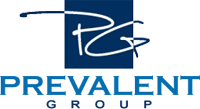- Dependability – Show up on time, dress in a professional manner, turn in the same quality of work each day, commit to the team, and give your manager a sense that when she passes a project on to you, she knows it’s in good hands.
- Self Motivation – Managers dislike micromanaging their employees almost as much as employees dislike being micromanaged. They want their teams to hit the ground running each day, they want employees to seek out new projects and overcome obstacles on their own.
- Brand Ambassadors – Employers want strong representatives of their brand – whether they are on the clock or off the clock.
- Flexibility – Change is inevitable. Employers want team members who can roll with the punches, adapting their approach quickly in the face of change.
- Teachability – Are you open to learning new skills? How quickly do you pick up on them? Employers want their team members to be open to learning.
- Empathy – Not every person on a team is going to get along with every other person all of the time. Conflict is a fact of life. But employers want to see a high level of empathy from their employees. Can you put yourself in others’ shoes and overcome conflict to get the job done?
- Proactivity – When something needs to be done, don’t wait to be instructed to do it. Roll up your sleeves and get things done without having to be asked or told.
- The Ability to Act on Feedback – When a manager tells you that you’ve done something well, do you repeat that behavior? When you’ve been given a plan for improvement, how quickly do you act on it? The ability to receive and act on feedback shows a high level of engagement in your work.
Giving Employers What They Want
What do employers want from their employees? While the answers will vary from company to company, field to field, and manager to manager, there are some common skills and qualities that employers look for in their new employees.
Great team members all have certain characteristics, and they are the characteristics that managers want to see in every new employee. If you are hoping to make a good impression on your new employer, keep in mind that these are likely the traits they are looking for in you:
